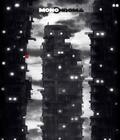If nothing else, a sense of mood is one of the major hallmarks of an indie game. The ability to convey drama through the relatively new medium is what can make a few titles like Papo & Yo and Braid stand out against productions from much bigger companies. As a game, the drama must come with gameplay mechanics that are good enough to draw in gamers who might not necessarily be invested in the tale you're telling. That's the conflict that Monochroma, the new game from Turkish developer Nowhere Studios, faces, and it doesn't necessarily win.
The story is set in the 1950s. You play the role of a kid who's happily playing with your younger brother in a remote village. As you both play with a kite, it flies away, and you both give chase. Unfortunately, your brother climbs on the roof, steps on a weak part, falls and breaks his leg, robbing him of the ability to walk. With no doctor nearby and no way back home, you start carrying your younger brother on your back in search of help.
The approach to the storytelling is novel since it uses no dialogue whatsoever. There are no wall markings or diary entries to let you know what's going on. The few signs are done in very unfamiliar lettering and don't convey what kind of establishment it is. Even the characters don't grunt or speak in gibberish. Everything you need to know is told through music and actions, and for the most part, it works.
The problem with the story isn't in the delivery but with the story itself. Taken as a whole, the plot of how a company has slowly taken over a city and made it seem bleak may be overused, but it still fascinates. However, there are just too many open ends introduced that never get closed, making the story more convoluted than it should be. There's no reason why the towns are so abandoned. There are mysterious vats but no reason for their existence. Big, bald men in striped shirts chase you, but the end game for them isn't clear, especially since they only seem to target your younger brother. By the end of the game, there are even more mysteries that appear but no resolution to any of them by the time the credits roll. Other platformers of this kind ended with questions, but they stuck with one mystery instead of a slew of them.
Like its contemporaries Brothers: A Tale of Two Sons and Limbo, Monochroma is a puzzle platformer. You'll encounter several sections in a world where you need dexterity and wits to open up a path to proceed. Moving platforms of various heights, triggering switches in the right order, and creating your own pathways are par for the course, but the real challenge comes from the fact that your little brother can't be left behind. He refuses to be put down in dark spots, and his extra weight means less mobility for you in terms of jumping. He can be placed under bright light sources, though, but you still can't wander too far away from him — you physically stop.
Lots of the puzzles aren't that hard to solve. Very few wrack your brain, since most simply require common sense. Putting out the fire in a barrel before exposing it to flammable liquid or using a robot to help you reach a high rooftop are all quite logical. Even the ones requiring you to place your brother in strategic spots aren't that obtuse. For the genre, that's pretty refreshing.
There are a plethora of reasons why the puzzles are annoying, though. They seem overly long due to your general lack of speed. Hitting switches seems to be a big chore since it takes some effort to turn it on or off, whether you're standing still or hanging on to it. Picking up your brother takes up a similar amount of time no matter the situation. It makes a little more sense since you're trying to take care of him, but when you see your character gingerly picking up his brother despite the impending danger coming their way, the pace feels glacial.
Perhaps the main reason why the puzzles can be grating is because of the controls and bad physics system. The controls are responsive enough on the gamepad due to a recent patch, but it's pretty sloppy that you have to leap from a ladder to the platform it's connected to or drop from the platform before you can descend the ladder. The keyboard doesn't make things any better, especially since you can't rebind the controls. No matter what you use, the physics cause you to have plenty of deaths. Ropes refuse to swing from your inertia unless you're at the very tip. Boxes you use as flotation devices sometimes forget that they can be buoyant. Sloped surfaces suddenly propel you at amazing speeds even if you only step on the bottom portion of the slope, and your character often decides to take an extra step forward when landing on a ledge, often to his doom. The breakdown in physics leads to a breakdown in overall platforming, and even though the title isn't completely dependent on precision, the failure in basic mechanics for the genre drags down the whole experience significantly.
When you aren't solving puzzles, Monochroma either has you soaking in the scenery or running away from burly men who want to capture you and your sibling. Both are meant to break the tedium of the puzzles, but they do little else to be memorable. For the former, the walking scenes took too long, and the stretches between events or puzzles felt like they dragged on instead of providing a respite between tasks. The demonstration of gradual decay as you get closer to the end is stretched on for longer than it needs to be. For the latter, the chases aren't too exciting. Unless you deliberately slow down or bungle a jump, you never get the sense that you're in danger. Even if you get caught, you simply slump over when touched, and that's anticlimactic.
On the surface, the graphics are artistically striking. The game is displayed with varying shades of gray that stay true to the melancholy tone of the title. However, the tinges of red make the look stand out even more. Even if the effect is overused throughout the game, the highlights of neon signs, corporate logos, and a billowing scarf look great. Less impressive are the animations which make the models look incomplete. The walking and climbing animations look fine until you see your character grab invisible ledges. Your younger brother is sometimes magnetic as he zips toward you when you activate the command to pick him up. Going up straight ropes is good, but seeing the same pose unchanged when the rope sways and his feet flutter around is odd, and the leaps from ladder to ladder look stiff. Even death is rather uneventful since you and your brother simply go stiff when you hit the water or get hit by falling boxes or runaway trains.
Also jarring is the lack of PC options for graphics. You can change the resolution and whether you want to play in a windowed mode or in full screen, but there's no way to eliminate things like screen tearing or the jagged lines. The frame rate still isn't stable on a rather powerful rig, conveying to the player that optimization was the last thing the developers thinking about.
If one were to judge the sound of the game on the music alone, then it would be quite good. The chase music is exciting, and the somber tones do a good job of evoking a sense of loneliness. Like most of the game, though, the soundtrack is ruined by technical glitches; it can sometimes stop playing for no reason or forget to return after the player dies. The sound effects fare much worse since there aren't very many. Some of the sounds, like glass breaking, are fine, but most of what you'll do is met with silence as if the game is trying to emulate a silent film. It makes the game feel unfinished you plunge into the water or are crushed by objects but only get the musical cue for death and nothing else.
Monochroma has the heart of a good dramatic game, but it has neither the soul nor mechanics of one. The presentation and premise are very good, but the lack of payoff hurts. The gameplay seems solid, but there are enough flaws to make it feel like it was put together without much care. The good news is that the developer has been trying to patch the game often, so there is hope that it can ultimately be good, but for now, you have to put up with a lot to enjoy it.
Score: 5.5/10
More articles about Monochroma










 Set in an alternate universe during the 1950s, Monochroma tells the story of a boy and his brother who witness a horrific crime committed by an evil corporation.
Set in an alternate universe during the 1950s, Monochroma tells the story of a boy and his brother who witness a horrific crime committed by an evil corporation.



































